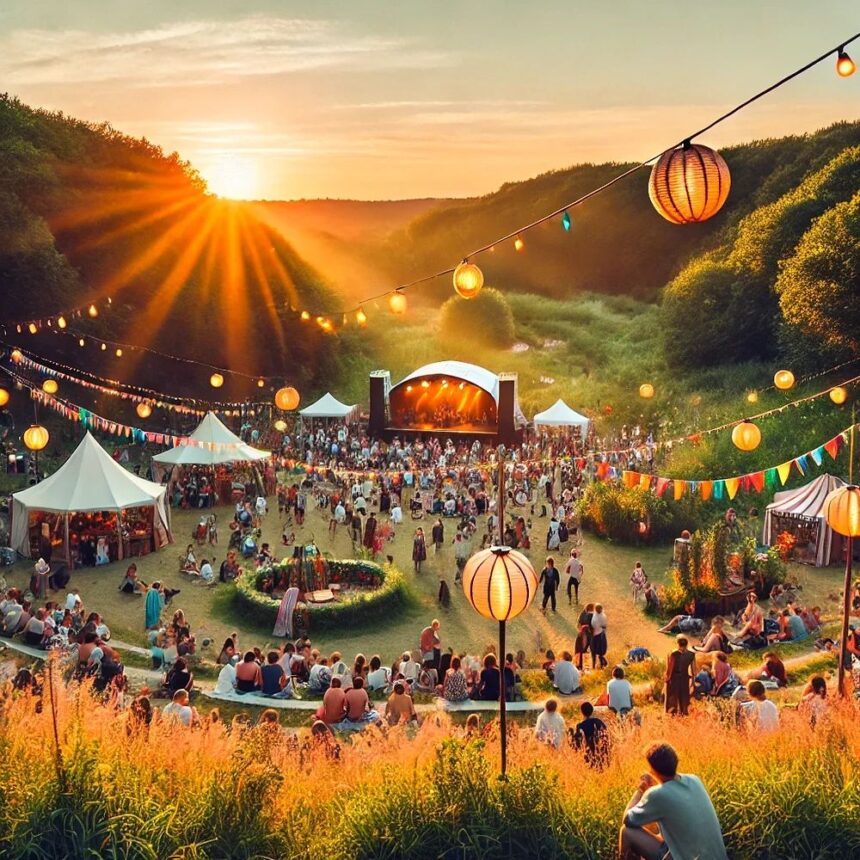12 Incredible Reasons Why Festivals Transform Our Lives
Festivals are an integral part of human civilization. Across cultures, communities, and religions, festivals serve as a reflection of human behavior, culture, and the values we hold dear. General festivals, unlike religiously specific ones, are celebrated across society and often highlight human achievements, seasonal changes, and cultural milestones. These celebrations are not just moments of joy—they are a mirror of society, a teacher of traditions, and a guide for daily life.
History of Festivals
The history of festivals can be traced back to ancient civilizations. From the Egyptians marking the Nile’s flooding to the Mesopotamians celebrating seasonal harvests, festivals have always marked critical moments in human life. In India, general festivals include:
New Year Celebrations: Various regions in India mark their own traditional New Year, like Gudi Padwa in Maharashtra and Ugadi in Andhra Pradesh.
Harvest Festivals: Celebrations like Pongal, Makar Sankranti, and Baisakhi honor the seasonal harvest.
National Festivals: Republic Day and Independence Day celebrate India’s historical milestones and national pride.
These festivals originally served as social glue, bringing communities together for shared joy, and often included music, dance, storytelling, and food.
Fascinating Facts About Festivals
There are over 50 recognized general festivals celebrated across India throughout the year.
Many festivals are linked to astronomical events, like solstices and equinoxes.
General festivals often combine fun, education, and spirituality, teaching lessons without being overtly religious.
Seasonal festivals, such as harvest celebrations, are tied to agricultural cycles that date back thousands of years.
Festivals significantly impact local economies, boosting crafts, tourism, and trade.
Timeline of Major General Festivals
Here’s a timeline of key general festivals in India, across the year:
| Month | Festival | Significance |
|---|---|---|
| January | New Year Celebrations / Lohri | Marks new beginnings and harvest celebrations |
| January | Makar Sankranti / Pongal | Sun worship and gratitude for harvest |
| March | Holi | Celebration of spring and colors; unity and joy |
| April | Baisakhi / Vishu / Gudi Padwa | Regional New Year and harvest festival |
| August | Raksha Bandhan | Strengthening sibling bonds |
| October | Dussehra / Vijaya Dashami | Victory of good over evil; cultural performances |
| October–November | Diwali | Festival of lights; prosperity and joy |
| November | Children’s Day / National Festivals | Social learning, cultural activities, and educational observances |
| December | Christmas / Winter Festivals | Joy, family gatherings, and universal human connection |
Significance of General Festivals
General festivals are celebrated for varied reasons, but their impact spans multiple aspects of life:
Cultural Significance: They preserve local art, music, dance, and culinary traditions. For example, Diwali and Dussehra involve decorating homes, preparing traditional sweets, and performing folk dances.
Social Significance: Festivals strengthen relationships between families, friends, and communities. Raksha Bandhan and Holi encourage togetherness and reconciliation.
Economic Significance: Festivals drive local and national commerce. Markets flourish with sweets, gifts, clothes, and decorations.
Psychological Significance: Participating in festivals promotes happiness, reduces stress, and enhances emotional well-being. The colors, lights, and social interactions have a therapeutic effect on human behavior.
Educational Significance: Festivals teach cultural heritage, values, history, and moral lessons to children and youth.
Festivals and Daily Life
The impact of festivals on daily life is profound and multi-layered:
Routine Disruption for Positive Impact: Festivals often require preparation, shopping, and cooking, which breaks daily monotony and refreshes mental energy.
Family and Community Engagement: People reconnect with family and neighbors, fostering emotional and social bonds.
Reflection and Gratitude: During festivals, individuals often pause, reflect, and express gratitude, enhancing mental clarity and emotional balance.
Promotion of Charity: Festivals encourage giving, sharing, and helping the needy, which strengthens moral values.
Cultural Continuity: Observing traditions, rituals, and festivities ensures the transfer of culture and wisdom from one generation to the next.
Frequently Asked Questions (FAQs) About Festivals
Q1: Are general festivals only for celebrations?
A1: No. They serve educational, cultural, social, and spiritual purposes beyond mere enjoyment.
Q2: Do festivals affect the economy?
A2: Yes. Festivals boost retail, tourism, artisan crafts, and local businesses significantly.
Q3: Why do festivals involve fasting, prayers, or rituals?
A3: Rituals promote discipline, self-reflection, and a sense of spiritual or emotional fulfillment.
Q4: How can festivals improve social behavior?
A4: By promoting kindness, unity, and cooperation, festivals encourage positive interpersonal behavior.
Q5: Are festivals relevant in modern life?
A5: Absolutely. Even today, festivals foster community bonding, cultural awareness, and personal growth.
Wishing During Festivals
Sending wishes during festivals is a gesture of goodwill and positivity. Common examples include:
“Wishing you a joyful and prosperous Diwali!”
“May this Holi bring color and happiness into your life!”
“Happy Baisakhi! May your harvest and life be abundant!”
“Celebrate Independence Day with pride and joy!”
These expressions enhance human relationships and spread happiness across communities.
Important Points to Remember
Festivals often combine mythology, astronomy, and human behavior.
Celebrations reinforce ethical values, courage, compassion, and generosity.
Community participation is as important as individual observance.
Modern festivals blend traditional rituals with contemporary celebrations, keeping them relevant.
Observing festivals enhances social harmony, emotional well-being, and cultural continuity.
Conclusion: The Transformative Power of Festivals
Festivals are more than celebrations—they are life-transforming experiences. They shape human behavior, encourage social responsibility, preserve culture, and inspire spiritual growth. Whether it is the joy of Holi, the lights of Diwali, or the communal harmony of Raksha Bandhan, festivals offer lessons on gratitude, kindness, and unity.
By participating in festivals, we not only celebrate life but also connect with our heritage, strengthen relationships, and enrich our daily existence. These events teach us the balance between joy and discipline, material and spiritual growth, and personal and communal well-being.
Ultimately, festivals remind us that human connection, culture, and celebration are central to a meaningful life. Ignoring these traditions can lead to a loss of cultural awareness and social cohesion, while embracing them transforms both individual lives and society as a whole.
The general festivals have been solemnized as auspicious days in India. During such occasions, people would spend the time by exchanging gifts with their loved ones, feasting, family gatherings and friend’s reunion – the traditions, all of which are adapted from the Westerners. Out of the occasions, Mother’s Day and Valentine’s Day have stood as prominent festivals, over the passing years. Thanksgiving and Halloween still have to go a long way in securing importance as a prominent festival of India. New Year eve is just like a carnival in India, similar to what is seen in other parts of the world.
Mother’s Day is celebrated every year, on the second Sunday of May. The festival, which honors motherhood, is celebrated with great enthusiasm across many parts of India. Valentine’s Day has evolved as the most popular festival, adapted from the western world. Although Thanksgiving is not so popular in India, it is celebrated as harvest festival, which bears close resemblance to it. Halloween is a hit theme at night parties and as a festival, it is celebrated in many parts of the country. Although Father’s Day is not as popular as Mother’s Day, it is also observed with fervor, in India. Read all about the general festivals of India in our related section.








